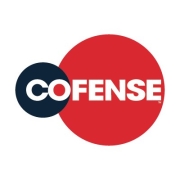Security Incident Response enables organizations to efficiently manage cyber threats, reducing downtime and potential damage. It involves preparation, detection, analysis, containment, eradication, and recovery from security incidents.
Efficient Security Incident Response is crucial for maintaining business integrity by addressing unexpected security breaches promptly. It involves coordinated strategies to identify and mitigate threats, ensuring that risks are controlled and lessons are learned to prevent future occurrences. This approach helps organizations stay resilient in the face of evolving cyber threats by continuously refining response strategies through feedback and insights.
What are the critical features?In sectors like finance, healthcare, and critical infrastructure, Security Incident Response is vital to safeguard sensitive data and maintain compliance. Financial institutions require rapid response mechanisms to prevent data breaches, while healthcare facilities must protect patient information. Energy sectors focus on maintaining operational continuity and protecting critical infrastructure from cyberattacks.
Prioritizing Security Incident Response helps organizations maintain business continuity and protect sensitive information, ensuring stability and trust in their operations. It is an essential component in managing risks associated with cyber threats, promoting confidence among stakeholders and customers.
































Automation in Security Incident Response can significantly enhance the efficiency and effectiveness of your security measures. By automating repetitive tasks, you free up your team to focus on more critical threats. Automation can help quickly identify, assess, and respond to incidents, reducing the time attackers have to exploit vulnerabilities.
What are the key components of a robust Security Incident Response plan?A comprehensive Security Incident Response plan includes preparation, detection, containment, eradication, recovery, and review. Each phase requires specific actions to mitigate impacts, protect assets, and learn from incidents. Establishing clear communication protocols and roles for your team is essential for effective incident handling.
Why is threat intelligence crucial for Security Incident Response?Threat intelligence provides critical insights into potential threats and vulnerabilities, allowing you to anticipate and prepare for attacks. By integrating threat intelligence into your Security Incident Response strategy, you enhance your ability to detect, prioritize, and respond to incidents, making your defense more proactive and informed.
What role do SIEM systems play in Security Incident Response?Security Information and Event Management (SIEM) systems collect and analyze data from various sources within your network to detect anomalies and potential threats. They play a crucial role in identifying security incidents in real-time, enabling quicker response and minimizing potential damage. SIEM systems also provide valuable data for post-incident analysis.
How can Security Incident Response solutions align with compliance requirements?Security Incident Response solutions help organizations meet compliance requirements by ensuring that there are processes in place to detect, report, and manage incidents effectively. These solutions can help document incidents and responses, providing necessary evidence to demonstrate compliance with industry standards and regulations such as GDPR or HIPAA.